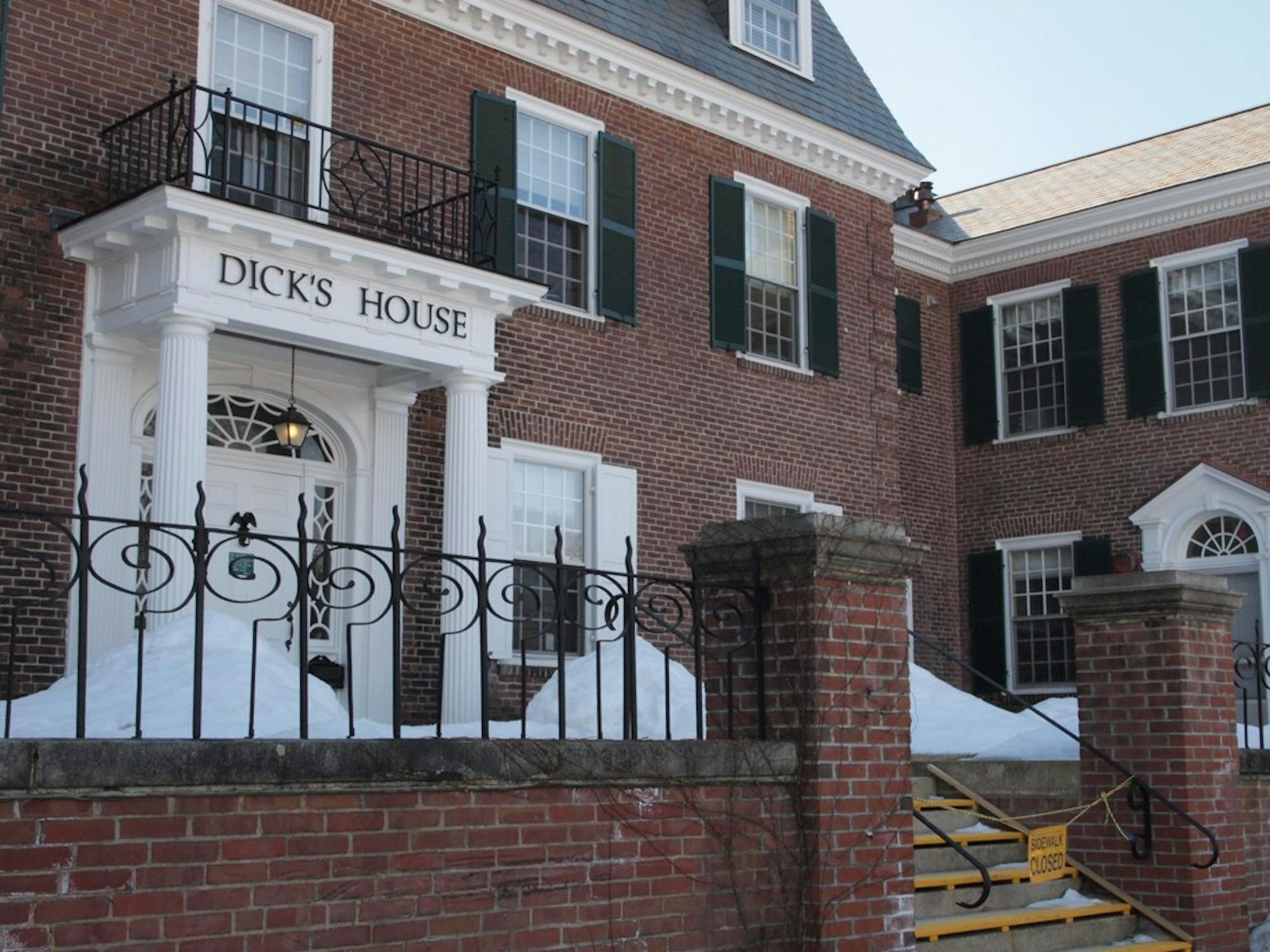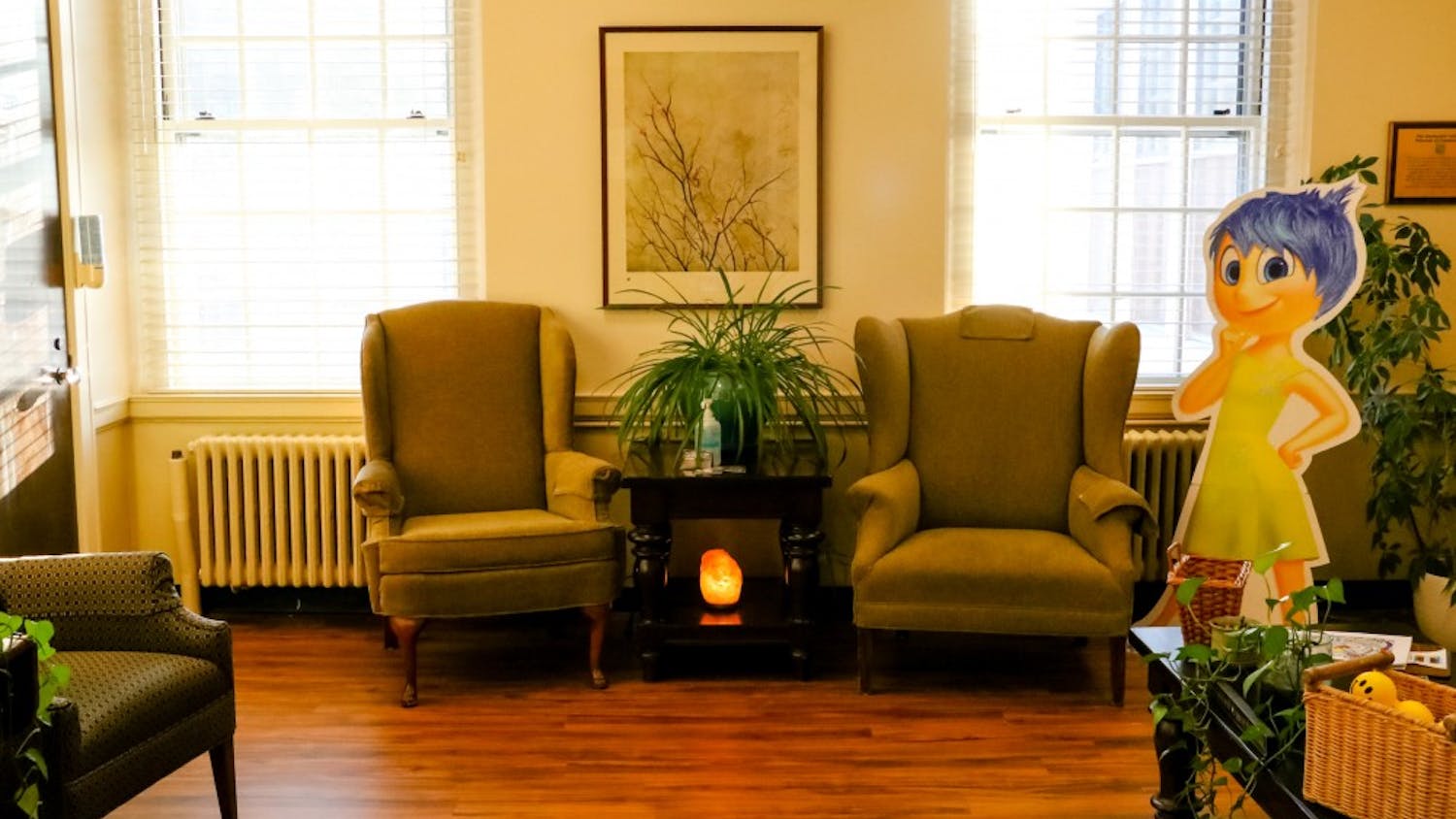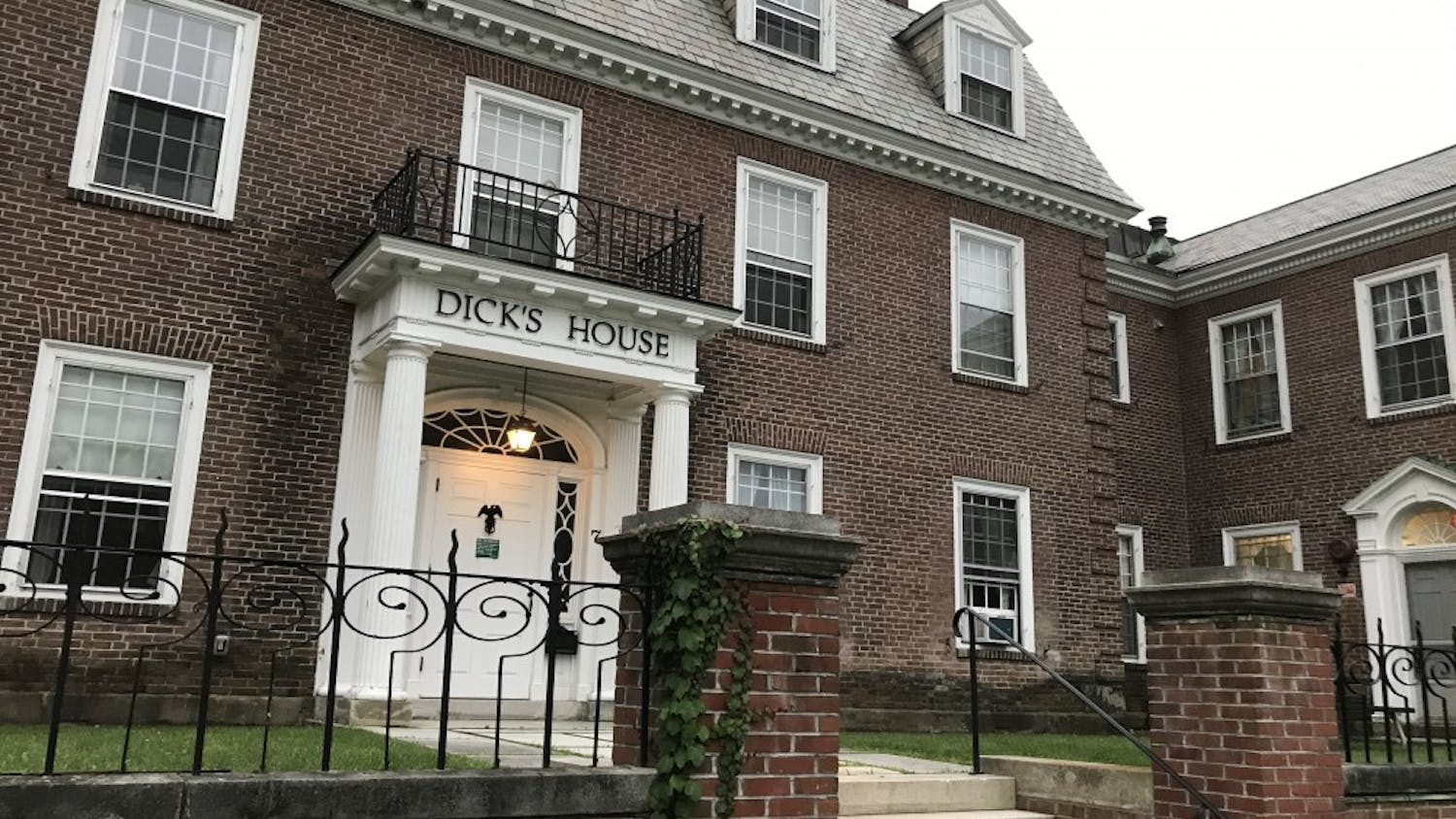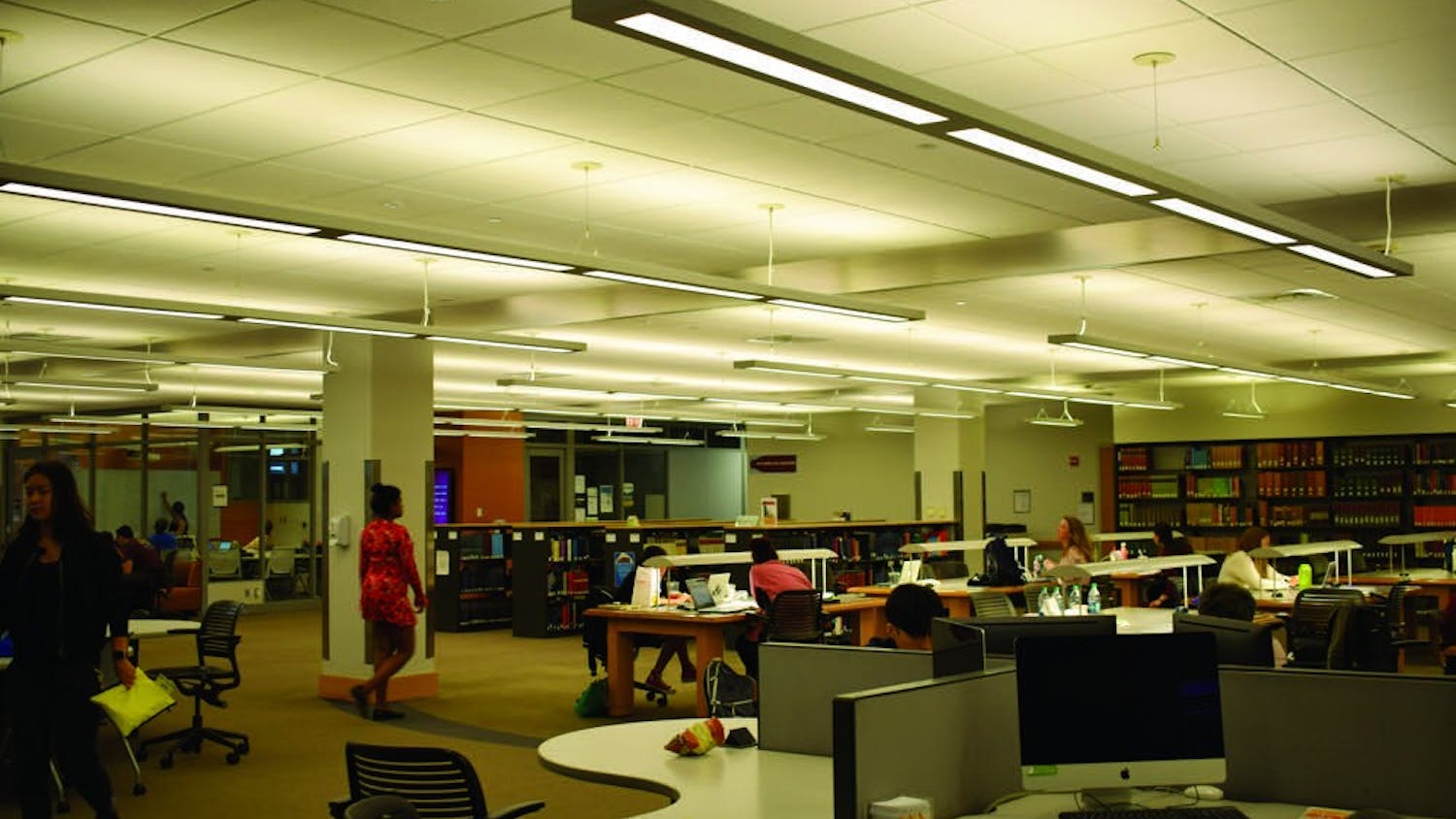Currently, the College’s counseling service sees a quarter of the total student body, according to Mark Reed, the director of the health service. He said that use of Dartmouth’s on-call counseling services has increased by 60 percent over the last six years, and mental health-related admissions to Dick’s House have increased by 45 percent over the same period.
On campus, students seeking mental health and wellness resources have two main sources: the Counseling Center and the Student Wellness Center. Student Wellness Center director Caitlin Barthelmes said that these campus resources work with health resources outside the Dartmouth community to form a “network of care” to find the best fit between what a student needs and what a given service can provide.
Barthelmes added that the Student Wellness Center primarily focuses on “upstream health,” finding ways to “prevent anxiety levels from shooting up,” reduce “high-risk behaviors” and creating a culture among Dartmouth students which “supports wellbeing.” The center offers sessions helping students “shift gears” to “implement new practices which support their health.”
The counseling center, which has nine clinical counseling staff, helps students with more urgent health needs in addition to connecting them with longer-term counseling resources in the community, Reed said.
According to Reed, students can either schedule a “triage” appointment, which usually requires a wait of three days or contact of an on-call counselor available 24 hours a day, seven days a week. Counselors meet with students, assess their needs and then determine the best way to move forward and what resources the student may need. In addition to counseling sessions, Reed added that Dick’s House allows students with serious mental health issues — or any which require more personal and constant care and attention — a place to recover without leaving campus.
“Having the infirmary is wonderful — students can stay there, and it’s free [with the exception of alcohol-related admission],” Reed said.
Reed said that the D-Plan and Dartmouth’s fast-paced 10-week terms add to the strain that students feel and underpins the need for mental health services on campus. He added that the quarter system may create more sources of anxiety and stress than a traditional semester plan. With only 10 weeks of classes, a mental health issue that causes a student to miss a few weeks of class can be detrimental to their ability to complete the term, he said.
“I certainly believe that the 10-week terms allow less time to recover [than a traditional semester does],” Reed added.
Barthelmes agreed, saying that the “fasted-paced term and D-Plan” act as “constraints” on students’ ability to “fully thrive.” Barthelmes said that finding time to slow down and reflect is vital during each 10-week term.
In addition, Reed said the larger structure of the D-Plan creates added challenges for sustaining relationships. He said that he was unaware of any other schools at which students may not see each other for multiple consecutive off terms.
The D-Plan can not only impact relationships with peers but can also affect the ability for the College to provide effective counseling and match students with resources at home or wherever they may be traveling during off-terms, Reed said.
Miriam Heyman, chief inclusion officer at the Ruderman Family Foundation, conducted a study of a number of the College’s mental health leave policies, as written, and criticized Dartmouth’s requirements and restriction surrounding medical leave. According to the College’s Student Affairs website, “students who have withdrawn for medical reasons must secure the recommendation of the appropriate personnel at the College Health Service stating that they are fully capable of meeting academic responsibilities.”
Heyman said the policy feels “exclusionary and not helpful,” potentially compounding mental illness issues by creating an environment of social isolation for students on leave. She added that the policies also specify a maximum duration and number of leaves, overlooking the fact that the “trajectory of mental illness varies from one person to the next.”
Regarding how Dartmouth could improve its support of students on medical leave, Heyman recommended assigning each student on leave a personal contact person or counselor on campus who would be able to remain in touch with the student about their health but would most importantly make students on medical leave still feel like a part of the Dartmouth community.
“You are still a student of the school even though you are home for a term,” she said.
Heyman noted that the College’s written policies reflect institutional support for and commitment to students with mental illness. While she acknowledged that she has not been on Dartmouth’s campus to see how these policies play out, she emphasized the importance of written transparency on the part of the College, saying that the current “lack of transparency ... is deeply problematic.”
However, Reed said that he thinks the administration has been showing increasing commitment to improving mental health resources on campus.
The average national ratio of students per counselor is around 1,500 to one, Reed said. With a ratio of around 700 students per counselor, Dartmouth sits well above the national average but is still on the lower end of the spectrum among its Ivy Plus peers.
With increasing percentages of students utilizing mental health resources, Reed explained that mental health is a prevalent topic of discussion, and that the administration has responded by including the health service in the current “Call to Lead” capital campaign.
Reed said that in his approximately 30 years working at Dartmouth, this is the first time that counseling services have been included in a capital campaign.
The administration has promised five new counseling positions to be established by approximately 2022, with two of these new counselors to be hired as soon as possible, according to Reed. The first is already slated to start this summer, and the counseling office is currently in the process of hiring a second. He added that the new counselors would effectively amount to a 50 percent increase in the health services counseling staff, potentially decreasing wait times for appointments and increasing the number of students the counseling office can assist.
Additionally, Reed noted that colleges often increase their mental health resources after tragic instances of suicide and severe mental health crises. Reed said that it was encouraging to see the administration commit to improving counseling resources on campus in order to prevent tragic incidents of this type.
Reed also stressed the importance of continuing to devote significant time and resources to mental health outreach within the Dartmouth community. During the Student Assembly election this spring, all four candidates agreed that the College must solve the deficit of mental health counselors on campus. Student Assembly presidential candidate Tim Holman specifically addressed the “2-week” waits for appointments at Dick’s House and called for the administration to add new counselors in four to six months to offset this issue.
Studies have shown that over 60 percent of students who commit suicide are not seen by counseling services, according to Reed. He added that ensuring students feel comfortable using the counseling center’s resources is extremely important and that the center spends roughly 300 to 400 hours each term working on outreach initiatives in the Dartmouth community to further this end.
With one of the highest utilization rates among Ivy League universities, Dartmouth’s mental health resources are no doubt in high demand, Reed said. He added that if the College plans to continue with the high intensity 10-week quarter system and D-Plan, Dartmouth should continue to commit more resources to mental health services on campus.




